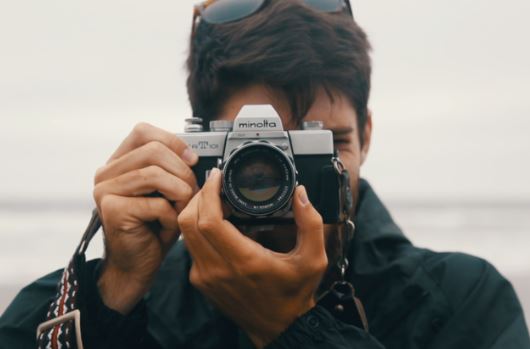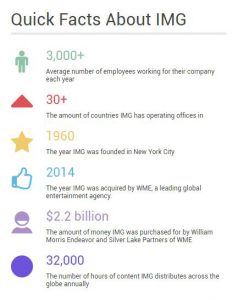His classroom in the Lamar Dodd School of Art building is nothing but plaster and hanging lights. It is a room meant to serve as a blank canvas, with bright lighting and floor-to-ceiling windows, begging to be filled. Professor Joseph Norman does this with his presence. He is a tall man, but it is his confidence and energy that seem to fill the space around him.
Some of his students work spread out on the floor while others tape their pieces up on the walls. There are long tables covered in dried paint and large works that hang off the edges. Norman, as his students call him, gives each student his attention. He walks around the room and gives advice with the calm confidence that comes from years of experience. He praises a student’s work and berates them for their attendance in one sentence. He observes one student’s piece, and seems very pleased about how frightening it is. “I love scary,” he says with a laugh.
He is able to tap into the vision of each of his students. His advice is more of giving them a push into a direction they were already heading. He brings his students up to his level of confidence where they could push boundaries. “I like breaking the rules, though. I like breaking them just enough,” he remarks while giving a student advice about her technique.
***
Joseph Norman was born in Chicago in 1957. Norman was first exposed to art in his mother’s home. “In most working class people’s homes, they aspire to, always trying to take another step up in our social strata. So my mother hung pretty pictures around the house.” Norman describes these paintings to be beautifully and classically done portraits and “of course religious pictures.” He would stare at these all the time.
At around the time he was 6 years old, his mother would sit and draw with him and his siblings. His eldest sister would bring art supplies home and encourage him to work. An older brother, who had been an engineer and draftsman, and later became a pimp –“but that’s another story”– would encourage Norman to just keep drawing.
In sixth grade, he would charge kids a nickel for drawing on the front page of their textbooks. When he was caught, a teacher stood up for him and called him “a young Picasso.” Norman admits that at the time he had no idea who Picasso was, but now considers him the “most important influence” on his work.
While attending graduate school at the University of Cincinnati, Norman was doing work in an expressionist style, “It was so good at the time…I had never really felt that way before.” He remarked that it was then that he understood the great abstract expressionists. “I’m not saying I was better, but I understood it.” The works from this period were his first to be collected by major museums. He remembered with great detail the day he had his big moment. “It happened in about 1988 or ‘89. I got a phone call on a Tuesday from the Museum of Modern Art. They were going acquire one of my works.” The next weekend the National Gallery also called for one of his prints. The next week, the Smithsonian called. Since then, the Museum of Fine Arts Boston and The Philadelphia Museum of Art have also purchased his works, as well as a number of venues. In 1992, Oprah called to acquire one of his paintings for $25,000; the most he had sold a piece for at the time.
Norman credits his mother with his decision to go into teaching. His mother wanted to be two things: a race car driver and a teacher. “Because of the racism and all of the stuff of the day, she couldn’t do that. But all of her children became educators – with the exception of the pimp,” he laughs. “But he could do calculus you know so, he was an engineer.” Norman’s father was a preacher. He used to watch him plan his sermons and learned the art of public speaking and planning from him. Going to academics seemed to be a natural progression in his life.
In 2015, a gallery of Norman’s work was featured at the Columbia Museum of Art. The exhibition, The Art pf Joseph Norman, presented two print portfolios: The Negro Baseball League, Volume I, and Patti’s Little White Lies.
***
Behind Norman’s desk there are pictures of students and some of the work given to him by them. “It’s always been about the students,” he says. Norman’s office is a room with mountains of work and books reaching up to the high ceilings. It could be called artistically cluttered. “I’ve had three super TAs,” says Norman. One of whom was Willoughby Hastings, a recent graduate from UGA who majored in scientific illustration. She is now working and living in Cranberry Isles, Maine.
“Our working relationship was awesome,” said Hastings. “It more like a friendship because we’d always be talking about art, artists and art history. I wasn’t worried about it being an official job, just as long as I got to spend a ton of time with him.”
It was Hastings who sought out Norman for the position, emailing him to ask if he needed an intern or studio assistant. Norman’s creative energy and his guidance draws his student in. “Norman is the most neutral perspective I’ve ever had in a teacher,” said Danielle Lasker, a textile design major from Macon, Georgia. “He can look at any style, any direction and be able to give you objective feedback. I think that’s so crucial to a teacher.” He likes to give his students push they need to get better at what they do.
“Watching light bulbs go off,” Norman said when asked about the most fulfilling thing there is about teaching. “The first thing you have to do is to humble yourself. You literally have to park yourself, your ego, at the door.”







